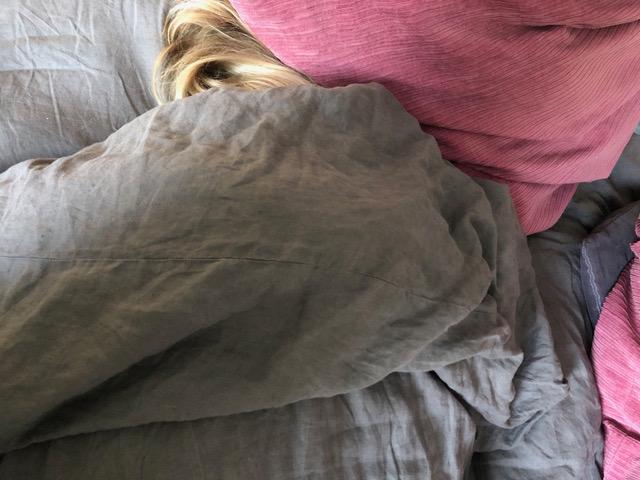Chemicals in your bed?

Sleeping with the enemy?
At worst you bed down in residues of isocyanates (poisonous chemicals which are used when manufacturing foam plastic), brominated flame retardants (due to foam rubber being flammable), perfluorinated substances which are used as impregnation, dimethyl fumarate which is used as an anti mold during long transports and allergenic dispersion paints. Formaldehyde, which is allergenic and may cause skin irritation and is as well a suspected carcinogen, is used for colour fixation and to hinder shrinking, wrinkles and spots on the textiles.
In spring mattresses most of the beds spring system stems from metal spirals, but often we also use a mattress on top. What is that made of? Even a latex mattress - which is made of natural rubber from the sap of the rubber tree Hevea Brasiliensis - could contain added chemicals such as solvents, stabilizers, binders and substances which make the rubber harden faster. Ask your bed dealer about how much of the mattress is really latex, so that you don´t think you have bought a natural product and come home with 30% additives and foam plastic. Poisonous organic compounds could also form during the manufacturing process. Avoid rubber which smells as solvents, gasoline, rotten eggs, or just… unpleasant.
Allergic or chemical sensitive?
Admittedly foam rubber is one of the real chemical tearaways, and from that perspective natural material is preferable, from coconut rubber to wool, cotton, linen and kapok (a curly silky fiber from a tropical tree). But natural rubber proteins could cause latex allergy, and many allergic individuals react to natural products as horsehair, wool and down. In that case many synthetic materials may work out better, or perhaps Oeko-tex approved cotton without additives as formaldehyde.
A person sensitive to certain chemicals could react to even very small amounts. Dare to ask about environmental certifications, materials and manufacturing processes. Use your nose. Wash and air. And have a keen ear to how your body reacts, so that the night will be a time of recovery and not the other way around.
